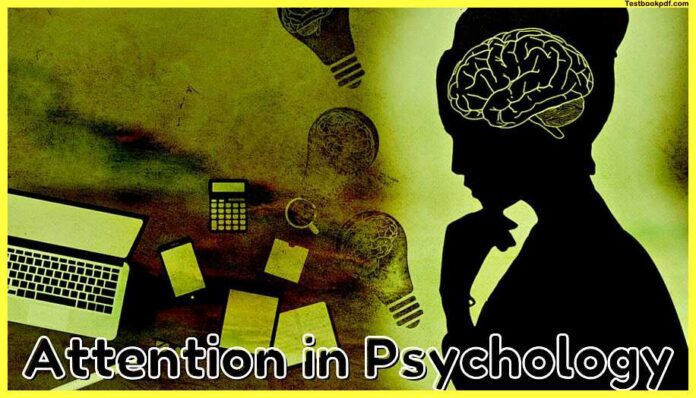In today’s fast-paced, hyper-connected world, maintaining focus has become a monumental challenge for many. Our attention is constantly under siege from a barrage of notifications, emails, social media, and the relentless hum of modern life. As a result, our ability to concentrate on tasks, achieve our goals, and experience a sense of fulfillment is diminishing.
The impact of distractions on productivity and well-being

Distractions aren’t just inconvenient; they take a toll on our productivity and overall well-being. Research shows that each distraction, even a brief one, can consume precious minutes as we struggle to regain our focus. This constant task-switching takes a toll on our mental resources, leaving us feeling drained and less able to tackle important tasks. If you’re looking for strategies to overcome these challenges, you might find valuable insights in resources like Mind-Setters, here you can explore techniques and approaches for cultivating a more focused and resilient mindset.
Identifying common sources of modern-day distractions
To combat distractions effectively, we must first understand their origins. The usual suspects include smartphones, social media, email, and the ever-tempting allure of the internet. These technological marvels, while undoubtedly beneficial, have become double-edged swords, capable of both enhancing and disrupting our lives.
The importance of setting clear goals for attention management

Setting clear goals is the first step toward reclaiming your engagement. Without a target, you’re more susceptible to drifting aimlessly through the digital noise. When you define your priorities and establish a clear sense of purpose, it becomes easier to resist distractions and remain on course.
Practical tips for minimizing digital distractions
The digital realm is a treasure trove of distractions, but you can regain control. Start by decluttering your digital life. Unsubscribe from unnecessary email lists, mute non-essential notifications and organize your apps and files for easy access to productivity tools while relegating time-wasting apps to the back burner. Consider using website blockers and productivity apps to enforce discipline.
Strategies for creating a clutter-free physical workspace
A cluttered physical space can clutter your mind. Ensure your workspace is organized, well-lit, and free from distractions. Invest in ergonomic furniture, noise-canceling headphones, and minimalistic decor to foster a conducive environment for deep work. A clean, uncluttered space can help you concentrate and reduce mental fatigue.
Incorporating mindfulness techniques for improved focus

Mindfulness isn’t just a buzzword; it’s a potent tool for honing your attention. Incorporate mindfulness practices into your daily routine. Whether it’s meditation, deep breathing exercises, or simply paying close awareness to your senses, mindfulness can help you sharpen your focus and stay present in the moment.
The role of regular breaks in sustaining attention span
Paradoxically, taking breaks is essential for sustaining attention. The human brain isn’t designed for continuous focus. To maintain productivity and prevent burnout, schedule regular breaks. Use techniques like the Pomodoro method, which involves working for focused periods followed by short breaks, to optimize your span.
Harnessing the power of prioritization and time management

To manage your attention effectively, prioritize your tasks. Identify what’s most important and tackle those tasks first. Use time management techniques like the Eisenhower Matrix to categorize tasks into urgent, important, non-urgent, and non-important categories. This helps you allocate your awareness where it matters most.
Building healthy habits to boost long-term attention control
Building and maintaining healthy habits is key to long-term attention control. Ensure you get enough sleep, eat a balanced diet, and exercise regularly. These habits not only improve your physical well-being but also boost cognitive functions, making it easier to stay focused.
The Psychology of Attention

Before delving deeper into strategies to enhance your attention span, it’s essential to understand the psychology of attention. Attention is a limited resource, and our brains are naturally inclined to filter information. This filtering mechanism, while necessary for survival, can sometimes work against us in today’s information-saturated world.
There are three main components of attention:
- Selective Attention: This is the ability to focus on one task or stimulus while ignoring others. Selective attention allows us to concentrate on a book, a conversation, or a work project while tuning out background noise.
- Sustained Attention: Sustained attention is the capacity to maintain focus on a single task over an extended period. It’s what enables you to study for hours or work on a project without constantly shifting your focus.
- Divided Attention: Also known as multitasking, divided awareness refers to the ability to juggle multiple tasks simultaneously. However, multitasking is often less efficient than focusing on one task at a time, as it can lead to cognitive overload.
Understanding these components of attention can help you tailor your strategies for staying focused in different situations.
Cognitive Biases and Distractions
Distractions aren’t solely external; they can also be internal. Cognitive biases, which are systematic patterns of deviation from norm or rationality in judgment, often play a significant role in our inability to stay focused. Here are a few cognitive biases that can lead to distractions:
- Confirmation Bias: This bias makes us seek out information that confirms our existing beliefs while ignoring contrary evidence. While this bias can sometimes be useful, it can also lead to information bubbles and prevent us from considering alternative viewpoints, thereby distracting us from critical thinking.
- Availability Heuristic: This cognitive shortcut causes us to rely on readily available information when making decisions. In the age of the internet, a vast amount of information is easily accessible, leading to information overload and decision paralysis.
- Negativity Bias: Our brains are wired to pay more attention to negative information, such as bad news or criticism. This bias can lead to a disproportionate focus on negativity, distracting us from positive aspects of life.
Understanding these cognitive biases can help you recognize when your own thought processes are leading you astray and causing distractions. Being mindful of these biases allows you to make more deliberate choices about where to direct your attention.
Conclusion and encouragement to take steps toward better focus

In conclusion, reclaiming your attention in today’s noisy world is a challenging but crucial endeavor. The constant bombardment of distractions can erode your productivity and well-being if left unchecked. However, by understanding the sources of distraction, setting clear goals, adopting practical strategies, and cultivating mindfulness and healthy habits, you can regain control over your attention.
Remember, it’s a journey, not a destination. Start small, and gradually incorporate these tips into your daily life. Celebrate your successes, learn from your slip-ups, and stay committed to your goal of enhanced focus. With determination and practice, you can reclaim your attention and unlock your full potential in a world overflowing with distractions.









